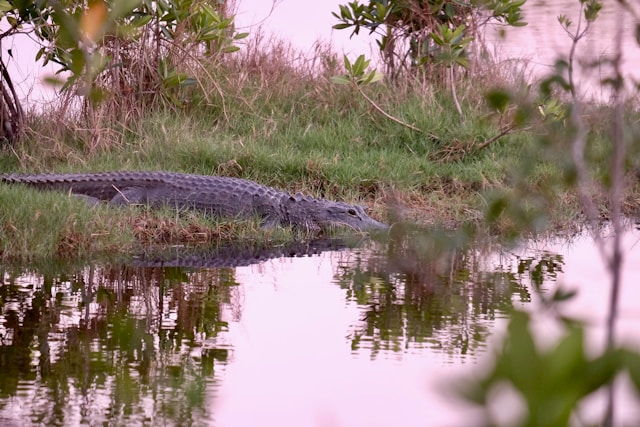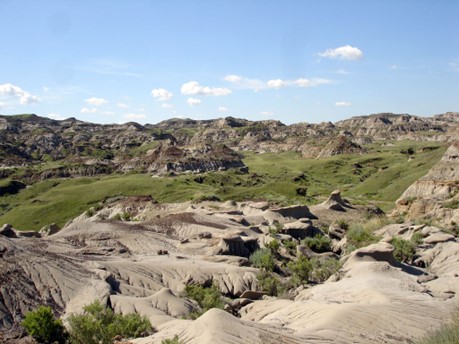Building Global Collaboration for Park Conservation
Inspired by the surroundings of the Acadia National Park, an international workshop supported by IUCN identifies climate change capacity building and working with indigenous communities as priorities for a new capacity building program.

From 12 to 17 May 2024, thirty-one people from the US, UK, Canada, South Africa, Italy, and Australia gathered at the Schoodic Institute in Acadia National Park, Maine, USA, for the International Capacity Building Workshop. It was sponsored by the US National Park Service Office of International Affairs, co-organized with the George Wright Society and supported in part by the IUCN North America Office. The purpose of the workshop was to begin developing a proposal for a new capacity building program to serve as a successor to USNPS's International Seminar on parks and protected areas, which ran from the 1960s through the early 1990s.
Participants included the IUCN WCPA Vice Chair for Capacity Development, representatives from the IUCN World Heritage Team and the IUCN/ICCROM World Heritage Leadership Programme, U.S. Park Superintendents, representatives from the Global Environment Facility and the World Bank, and park officials from South Africa, Canada and Australia.
The International Seminar (aka the International Short Course) was renowned for its excellence. It brought selected attendees from around the world to a host academic institution for classwork, supplemented by an extended study tour of national parks. Graduates of the seminar often cited the experience as being seminal to their careers. Several went on to play key roles in the formation and development of their national protected area system.
For all its effectiveness, the International Seminar was a product of its times and the organizers of the Schoodic workshop recognized that any successor event will have to emphasize multi-valent learning in which all participants share experiences, challenges, and innovations for the common benefit of all.
At Schoodic, participants used facilitated exercises to zero in on six general themes that emerged: innovation, Indigenous communities, climate change, public support / DEI (diversity, equity, inclusion), sustainable funding, and knowledge exchange. As the week progressed, it was recognized that two of these — Indigenous communities and climate change — were primarily topical subjects, and the remainder could be characterized more as conditions for success that could apply across any topic that might be chosen.
The participants distilled these key points:
- With respect to climate change capacity building, the overall framework of the successor event to the International Seminar should be climate change adaptation. Attendees thought this new event could create positive change by developing leaders with scientific literacy; increasing confidence in making decisions; sharing tools, case studies, and best practices; and encouraging collaboration among science agencies.
- With respect to Indigenous communities, the overall framework should be characterized by appropriate and respectful ways that produce genuine collaborative interactions. A successor event could create positive change by fostering peer-to-peer Indigenous leadership, enhancing understanding of legal frameworks relevant to Indigenous communities, bolstering the inclusion of Indigenous knowledge, and increasing the willingness and ability of non-Indigenous people working in protected area conservation to be open to change that involves ceding various levels of control to Indigenous communities.
As noted, the participants also explored how innovation, public support / DEI, sustainable funding, and knowledge exchange apply to all of the above. A copy of the full workshop report is available from the George Wright Society at info@georgewright.org.
A workgroup is being convened by the USNPS Office of International Affairs, the USNPS Learning & Development Program, and the George Wright Society to create a specific proposal for a successor event, and to help develop the necessary funding. The aim is to have the event sometime in 2025.


